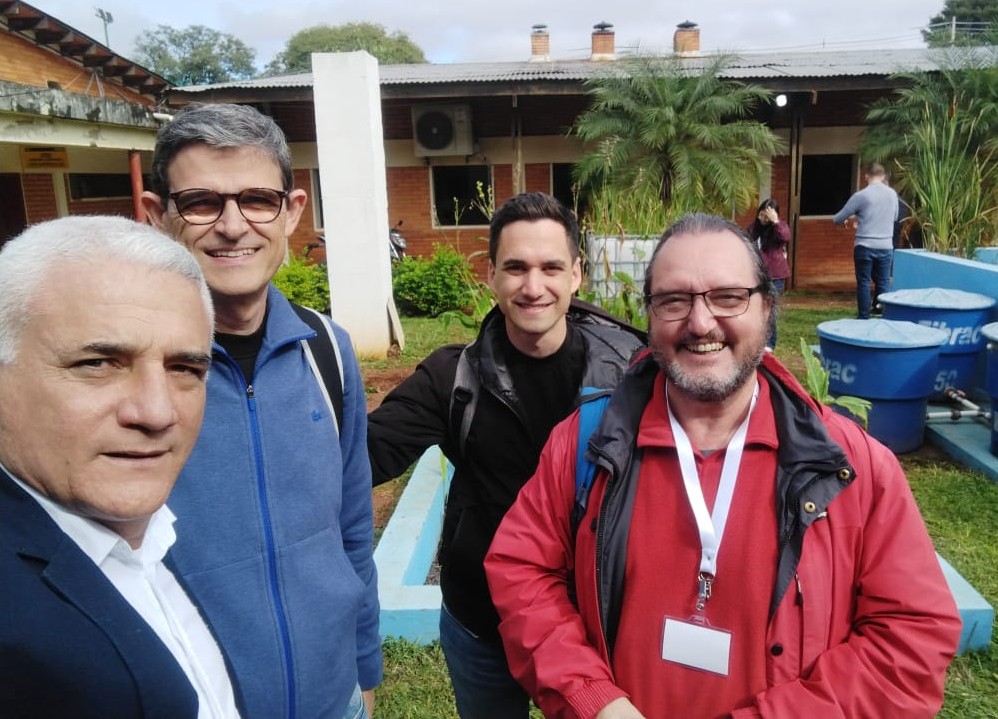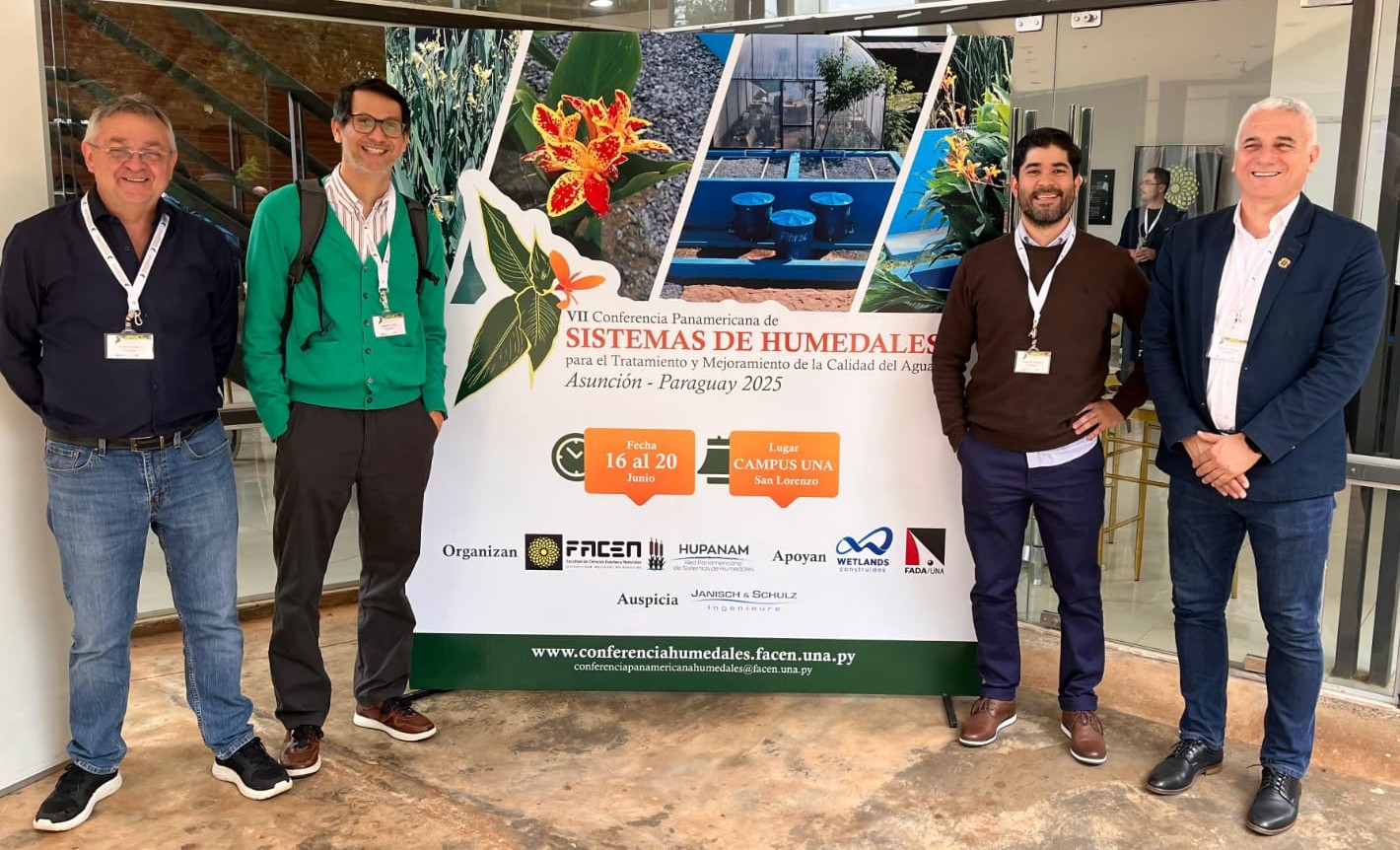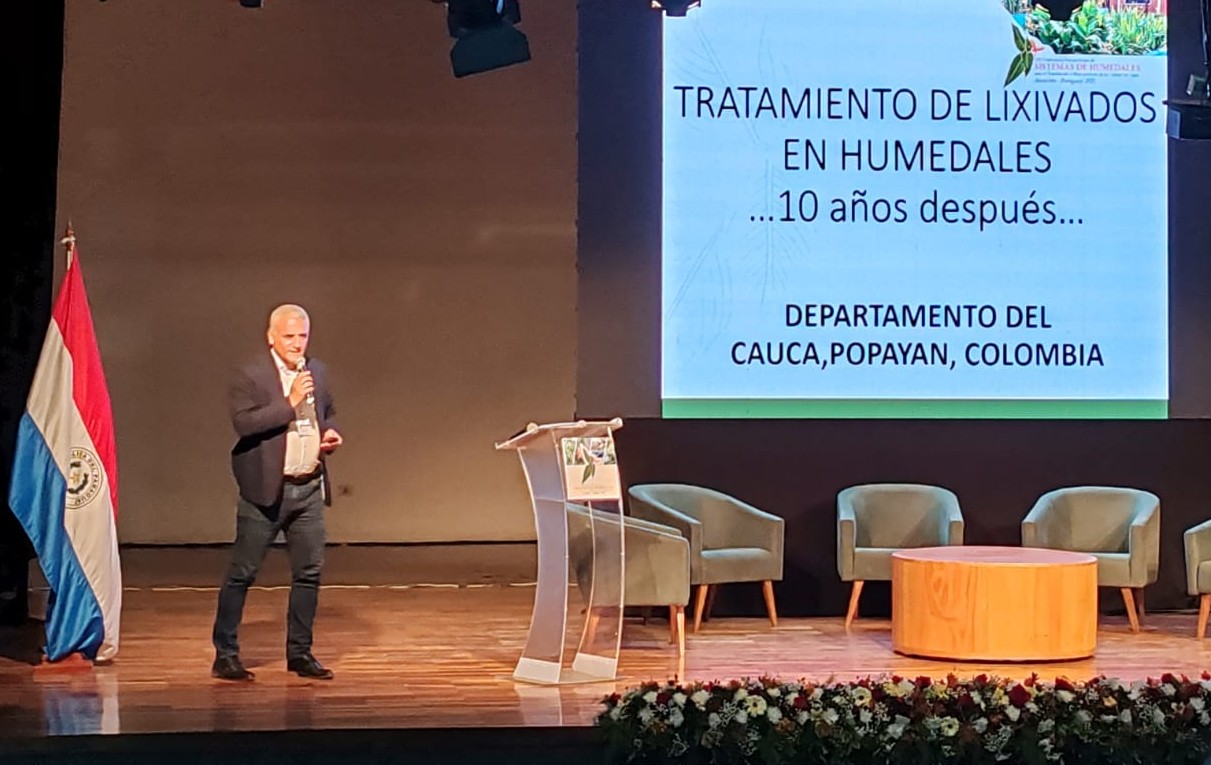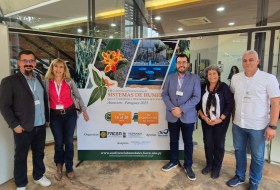News
#ConSelloUnicaucano: Research on wetlands presented at Pan American event becomes a legacy of innovation for water quality
In a milestone for Colombian research, the Dean of Civil Engineering at the University of Cauca, Dr. Juan Carlos Casas Zapata, not only represented the country at the Pan-American Wetland Systems Conference in Paraguay, but also captivated the audience with a presentation showcasing more than a decade of advances in the treatment of leachates, residual liquids that are generally toxic. His talk, based on pioneering research developed by the Environmental Systems Science and Engineering Group (GCISA), classified in Category A by Minciencias, positions our university as a benchmark in sustainable environmental solutions.
The University of Cauca reaffirmed its commitment to scientific and environmental leadership through the outstanding participation of its Dean of the Faculty of Civil Engineering, Juan Carlos Casas Zapata, at the VII Pan-American Conference on Wetland Systems for Water Treatment and Quality Improvement. Held in Asunción, Paraguay, from June 16 to 20, the conference was the ideal stage for Professor Casas to present the results of more than ten years of research on leachate treatment in wetlands, a project developed in the department of Cauca with the invaluable collaboration of undergraduate and graduate students from the GCISA group. With his lecture entitled “Leachate Treatment in Wetlands, 10 Years Later. Department of Cauca, Popayán, Colombia”, not only was the quality of Colombian research validated on an international scale, but the tangible impact of environmental solutions designed in southern Colombia was also underscored.

Provided photo
“The experience of attending the event made it possible to showcase over a decade of work by undergraduate and graduate students on wastewater treatment through wetland technology,” expressed Professor Juan Carlos with great enthusiasm. He also highlighted that his role as president of the Pan-American Wetland Systems Network (HUPANAM) enabled closer dialogue with researchers and academics from different countries, thereby strengthening academic collaboration. “This allowed us to support each other in research projects, advising undergraduate and graduate students, organizing webinars, and producing articles for indexed journals, among other activities. Being part of the network also opens opportunities for research internships for students and professors both within and outside Colombia,” he added.
The presentation focused on a key research line for the GCISA group: wastewater treatment through natural methods. Over the years, the group has studied a wide range of wastewater types, including domestic wastewater, effluents from coffee processing, animal farming (cattle and pigs), and landfill leachates. According to Dean Casas, this accumulated experience has been fundamental in advancing research at different scales: “This has allowed us to carry out studies at laboratory, pilot, and full scale, assessing key variables in wetland systems to purify wastewater. We have been able to determine retention times, plant species, hydraulic conductivity, removal efficiencies, and more, under the environmental conditions of our ecosystems. This enables us to establish baseline knowledge of how these systems operate in the region and, with continued work, to further consolidate the positioning of this technology.”

Provided photo
The event was also a space for sharing experiences, strengthening partnerships, and envisioning new initiatives with researchers from across Latin America. “Personally, having attended previous conferences of this same network only as a participant, and now being able to not only attend but also serve as president, deliver a lecture, and interact with other researchers, has allowed us to be at the forefront of these discussions in Latin America,” stated Professor Juan Carlos.
At our university, we recognize the importance of participating in these spaces for international academic dialogue, where knowledge generated in the regions can gain visibility. Events such as the VII Pan-American Conference are essential for sharing experiences, aligning efforts, and strengthening cooperation networks aimed at sustainable and accessible solutions to environmental challenges in Latin America. They also help extend the impact of university research beyond classrooms, connecting it with the real needs of communities and consolidating the University’s commitment to territorial development and the responsible management of natural resources.

Provided photo
It is worth noting that the VIII Pan-American Conference will be held in 2027 at the Catholic University of Maule in Chile, and the Faculty of Civil Engineering of our Alma Mater is already preparing to continue contributing with research that seeks viable alternatives for water management in the Latin American context.
Written by: Communications Management Center


